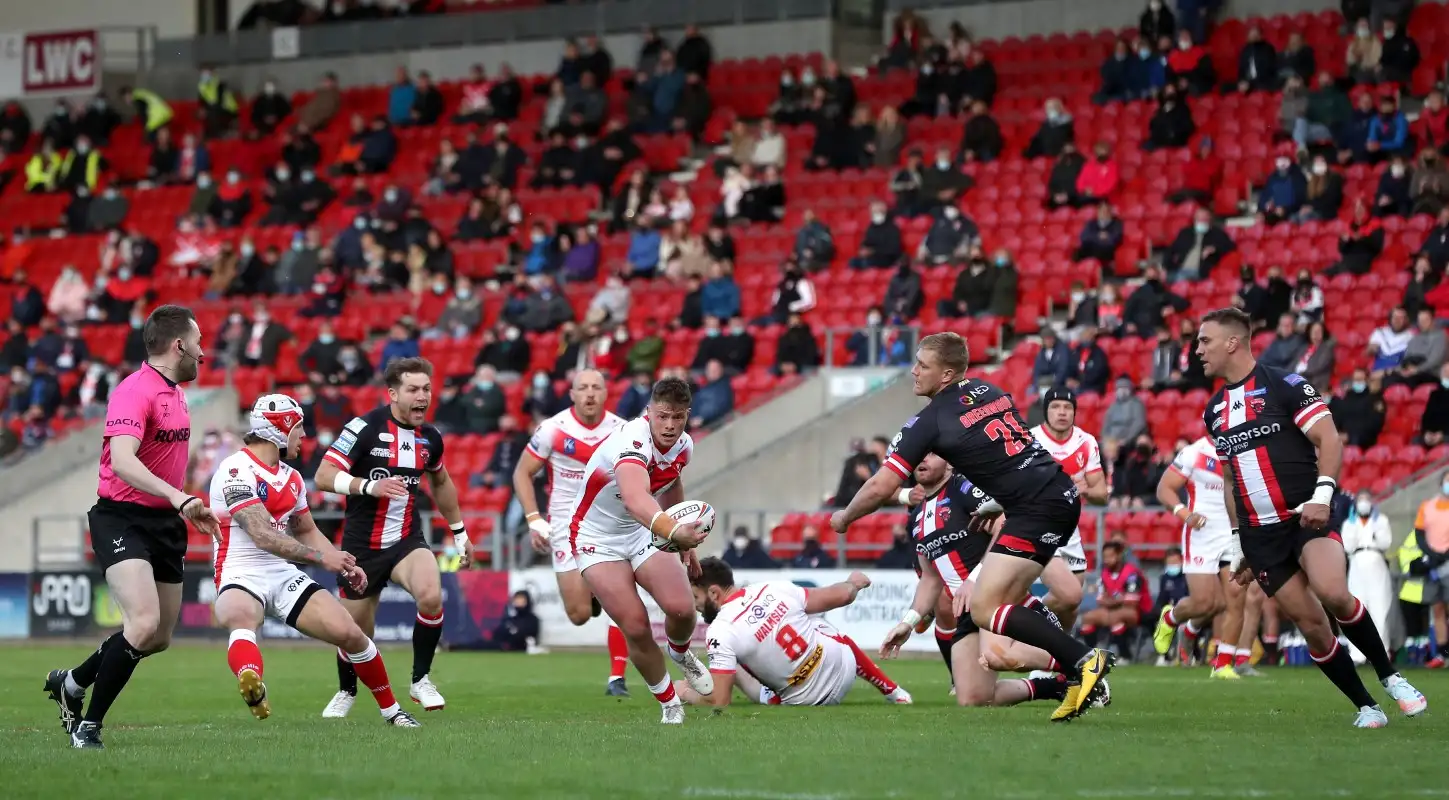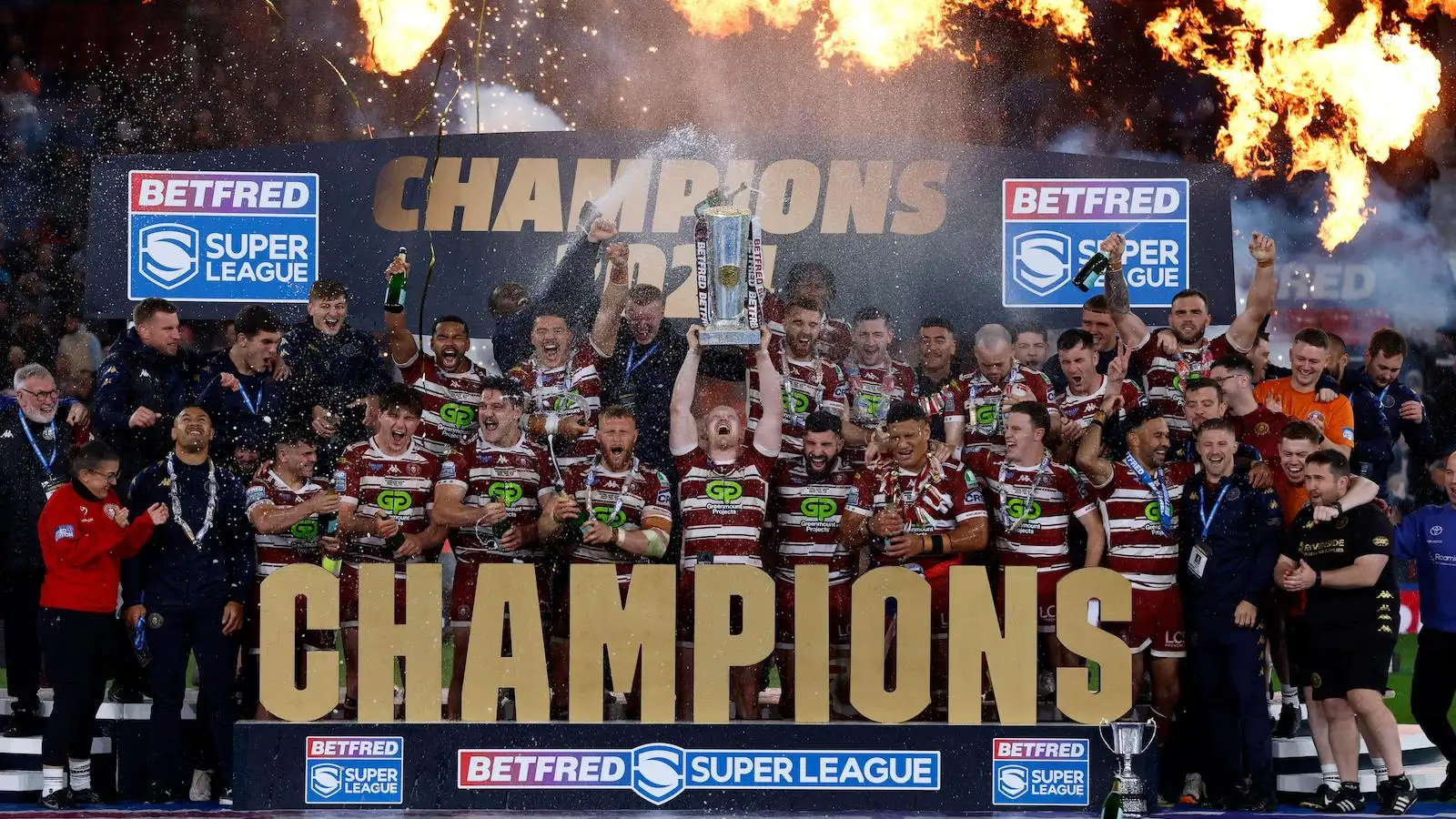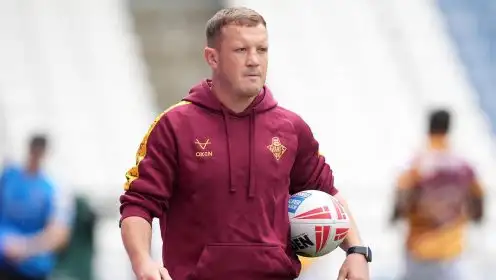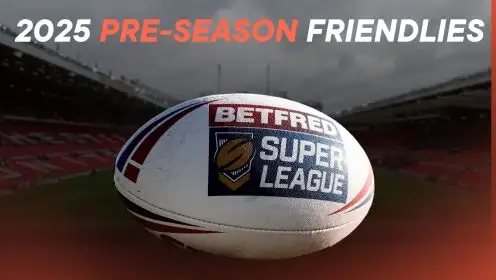How many clubs have taken advantage of the Government loans?

Fans returned to rugby league in the UK for the first time in 429 days on Monday night
A total of 20 clubs, including all 10 of the English-based Super League clubs in 2020, received a share of the original £16million loan made available by the Government last spring, a Rugby Football League spokesman has confirmed.
The governing body is now working its way through applications for the second Government loan of £16.7m and six clubs have so far have had successful bids. The rest have until the end of July to get their applications in.
The RFL has not disclosed details of the £32.7m loan but it is thought clubs are being given 10 years to pay back at favourably low interest rates and there is also the possibility of repayment holidays if clubs find themselves in further difficulties.
Meanwhile, St Helens chairman Eamonn McManus says rugby league clubs are emerging from the coronavirus pandemic heavily in debt but with a road map towards salvation.
After playing behind closed doors since March 2020, Super League clubs opened the turnstiles on Monday night as part of the Government’s easing of lockdown restrictions.
READ: “It was like we never left” – returning to grounds from a fan’s perspective
Saints’ 18,000-capacity Totally Wicked Stadium played host to 4,000 socially distanced season-ticket holders for the round-six game against Salford which the champions won 28-0 to maintain their unbeaten start to their title defence.
Hull, Castleford, Warrington and Leigh also let in fans for the first time for 14 months, along with Championship clubs Swinton and Featherstone, but none will have made any money.
“Financially it’s neutral,” McManus, a former Hong Kong banker who almost single-handedly put his hometown club on a sound financial footing since joining the board 20 years ago, said.
“Limited crowds bring no income into our pocket at all, although indirectly it’s a positive because it’s for season ticket holders who have already paid so they don’t get a rebate. Otherwise, we’d have to pay them back more.
“But it’s the first step on the road back to getting proper crowds in and proper income streams back into the game.”

Even the stadium bars, which have become a source of much-needed revenue, remained shut as a result of the Covid-19 restrictions that still exist and will stay that way for the next two home games against Hull and Warrington.
“There’s a whole new kind of Covid bureaucratic administrative industry that’s grown up with rules and regulations,” McManus said.
“So it’s just too much trouble and also there is a risk regarding social distancing with queues and the like. It’s just not feasible at this point in time.”
St Helens can only expect to start recouping their losses when grounds begin to fully re-open and they are already casting their eyes ahead to the big derby with Wigan on July 4.
“Everybody thinks that St Helens is fine because we’re in a strong financial position and 18 months ago we were,” McManus said.
“We built our own stadium and we had no debt on our balance sheet but the sound business model includes not just rugby income but non match-day hospitality, conferencing etc. It’s been a difficult time for us, to put it mildly.
“Nobody has come through unscathed. The entire sport, both at the centre and at club level, have taken out Government loans so all clubs have a level of debt on their books they didn’t have before.
“But that’s the price of survival and we’ve got a lengthy period of time to pay it off. While we will manage it, we obviously need to organise our affairs accordingly.
“And hopefully, if the timetable is met in terms of opening up crowds and hospitality and the like in the latter part of the year and certainly getting things in train for next season, we’ll be able to get through this.”

Wigan rugby director Kris Radlinski has estimated that each match played behind closed doors cost almost £100,000 in lost revenue but McManus says that is a conservative estimate.
“It’s much more than that because I don’t Kris has taken into account season tickets,” he said.
“We get £1.5million in season-ticket revenue at the beginning of the season normally and our match-day income would normally be £100,000 in addition to that.”
Subscribe to The Final Hooter on Apple Podcasts and get involved with the free-to-play Fantasy Rugby League 2021.
Rugby League Nostalgia is here! Get involved with Love Rugby League’s new group on Facebook to share all your rugby league nostalgia and celebrate the rich heritage of our sport.



